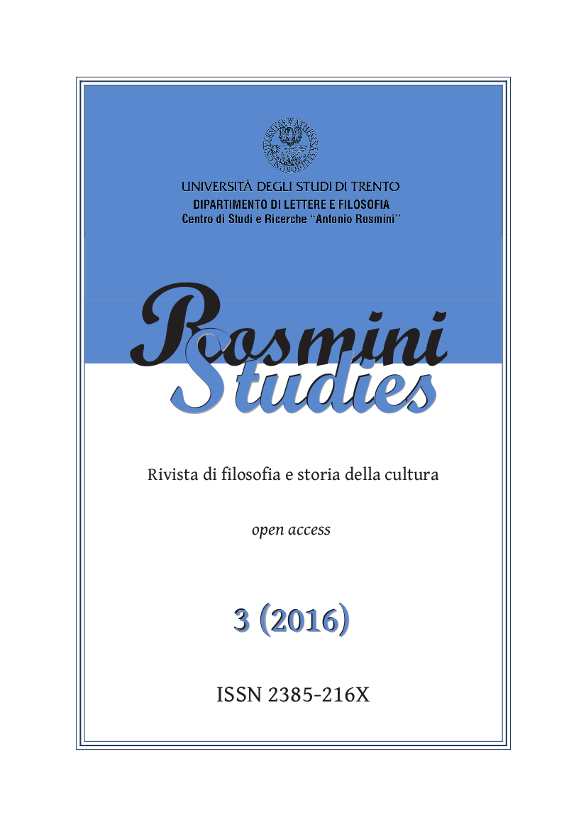L’interpretazione di Kant in Rosmini e Husserl
DOI:
https://doi.org/10.15168/rs.v0i3.81Parole chiave:
Rosmini, Husserl, Kant, Heidegger, Fenomenologia, IV fase, sintesi apriori, intuizione, idea dell'essere, intenzionalità, anti-scetticismo, prova dell'esistenza di DioAbstract
The idea of a confrontation between Rosmini and phenomenology is not new, but it still lacks a systematic approach, which must start from a comparison between Rosmini and Husserl. Their common reaction to Kant is, in fact, the most suitable way to understand the exact distance of Rosmini from phenomenology. Similar, in fact, are both the criticism of the synthetic a priori judgments, and the attempt to give them the right theoretical position in a synthetic-intuitive moment. While Husserl identifies it with the eidetic character of the experience of the world, and thus cannot overcome the solipsism of the conscience inherited from Descartes, for Rosmini this synthesis reconnects originally the subject with the otherness of the world and of the transcendent absolute: in Rosmini, the a priori synthesis means that the subject knows this objective otherness, because the original otherness of the idea of being is a priori condition of all subjective knowledge and consciousness.



